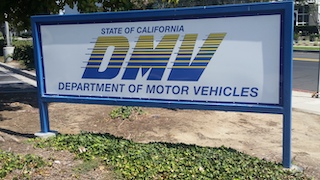When one loses at the DMV admin per se hearing for a DUI, the notice of ruling notifies the license holder what is required and when to apply for a restricted license at the DMV. One of the things the DMV needs is proof of financial responsibility for the last three years. This is an SR-22 from an insurance company. An SR-22 is also required when one seeks a restricted license after a conviction for DUI.
What is an SR-22 anyways? It is a certificate that is attached to a policy of automobile insurance (which can only last for one year) and stays on file with the DMV for three years. It summarizes the terms of the attached policy so that the DMV does not have to go through what can be over a dozen pages of boilerplate in a policy, which can be confusing. It merits mention that some insurance companies (USAA and State Farm, for example) refuse to issue SR-22’s and instead just drop their insured.
The DMV demands an SR-22 after a DMV admin per se hearing, a car accident, a negligent operator hearing at the DMV and when the DMV finds out one is driving without insurance. This demand, as one might expect, comes after police notify the DMV about a car accident or a court clerk notifies the DMV about a conviction for a violation of Vehicle Code § 16028.
Many drivers will call their insurance company to request an SR-22 be filed with the DMV so that they can get a restricted license. Many younger defense attorneys will also advise that their client follow this route.
This can be a big mistake. While the driver indeed may receive a restricted license, the driver will receive a significant increase in his or her insurance premiums for three to five years, depending upon the underwriting policies of the insurance company.
Generally speaking, there are four factors that insurance companies use in setting automobile insurance rates: 1) the policy holder’s zip code; 2) the driver’s age; 3) the make, model and year of the vehicle; and 4) the insured’s driving record. With a DUI on one’s record, insurance companies will typically boost the annual premium $2,000 to $3,000 per year for three to five years, again depending upon the type of car being driven, the driver’s zip code and the driver’s age.
More seasoned attorneys will recommend that the client have a talk with a commercial SR-22 provider. Such a provider often will recommend that the driver purchase a supplemental auto insurance policy, which is paradoxically designed to save the driver money despite it being a second auto insurance policy. It is a non-owner's policy. It does not cover the car at all. It is for people who rent a lot of cars and only need coverage for bodily injury.
 Torrance DMV
Torrance DMV
The best time to purchase such a policy is proactively before the admin per se hearing at the DMV or before the ruling is issued because at that time, the DMV has not acted on the driver’s driving privileges (the driver may even have a clean driving record). Consequently, the premiums will be lower because the underwriters will not see any suspension on the license for a DUI. Many commercial SR-22 providers understand the difficulty involved in buying a policy that may ultimately not be needed and offer to refund the policy premium paid if one prevails at the DMV hearing (which is difficult).
Such a supplemental policy is legal, as it does not create “redundant coverage” or duplicative claims arising from a single accident. It is useful in the large majority of DUI cases, however, it does not help in a DUI with an accident, an under-21 DUI, a refusal to submit DUI or a felony DUI.
The supplemental policy, which costs $300 to $500 per year, is used to submit the SR-22 to the DMV and avoid the premium hike that would otherwise accompany a request to one’s already existing insurance carrier (also called the primary carrier). More importantly, the supplemental policy satisfies the DMV’s requirements so one can indeed receive a restricted license and continue driving.
It is also a fall back, or contingency policy, in case the primary carrier drops coverage (then full coverage can be restored with the supplemental insurer), but having such a policy increases the chances your primary carrier will not drop you later.
For more information about DUI and driver’s license issues, please click on the following articles:
- I Lost My DMV Hearing for My DUI- Now What?
- What Is a Critical Needs Restricted License?
- Restricted Driver’s License for Second, Third & Fourth DUI
Contact us.  SR22 Sign
SR22 Sign Torrance DMV
Torrance DMV